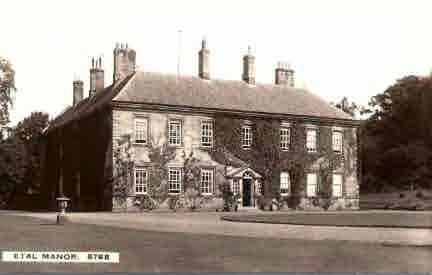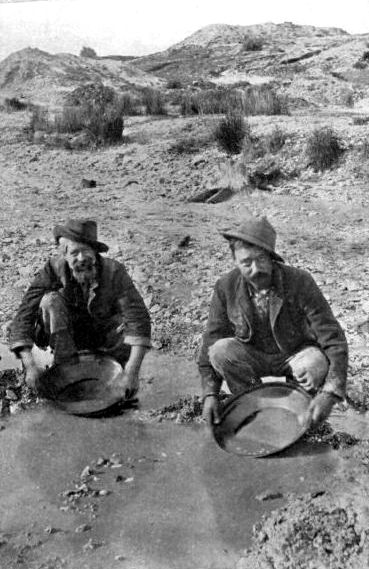
FASHIONABLE WEDDING AT NORHAM
MORLEY-CROSSMAN — GARTSIDE-TIPPINGE
The wedding was solemnised today (Thursday) in St. Cuthbert’s Church, Norham, between Major F. L. Morley Crossman, D.S.O., and of the late L. M. Morley-Crossman and of Mrs Morley-Crossman, Cheswick House, and Miss Ruth Gartside-Tippings, daughter of Capt. V. Gartside-Tippings, and of Mrs Gartside-Tippings, Morris Hall, Norham.
Major Crossman is 31 years of age, and received his education at Wellington College, and the Royal Military Academy, Woolwich. In 1907 he was gazetted to the Royal Horse and R.F.A. He served during the war, was awarded the M.C. in 1915, and the D.S.O. in June this year, and has been mentioned several times in despatches. He received his present rank of Major in 1917.
Canon Roberson, vicar of Norham officiated, Mr Walker organist of the Church, presiding at the organ. Before the service, while the guests were assembling, the strains of soft music floated through the beautiful old Norham Church, which dates from the 12th century. The music, specially chosen by the bride was as follows:- “Song of Thanksgiving,” Josiah Booth; “Andante,” Wely; Impressions Du Soir,”H. Stiehl; “Andante,” Myles B. Forster; “Melody,” S. Coleridge-Taylor. During the service Psalm 67, and the hymns “Love Divine” and “O perfect Love” were sung, and at the conclusion of the ceremony the bridal party left the church to the strains of Mendelssehn’s Wedding March.

The Bride, who was given away by her father, Capt. V. Gartside-Tippinge, looked very beautiful in a robe of simple white satin, trimmed with lace, with train, falling from the shoulders, of chiffon draped with Carrickmacross lace (the gift of the bride’s Godmother, lady Francis G. Osborne, Ord House). She wore a tulle veil, held in place by a bandeau of pearls (the gift of Mrs Houstoun) and carried a bouquet of lilies and white heather.
She was attended by four bridesmaids, Miss Hunter, Miss Hycinth Hunter, Miss Cicely Gough (cousin of the bride), and Miss Sybil Younger, who wore dresses of yellow crepe-de-chine, draped with georgette of the same colour, shoes of silver, and hats of silver lace, and carried sprays of copper beech. Each wore a diamond initial letter mounted on a black moire wrislet, the gift of the bridegroom.
The bride’s train was borne by two pages, Master Hugh Houstoun and Peter Marrow, who were attired in white satin knee breeches, white silk shirts, yellow sashes, and white buckleshoes, each wearing a gold safety pin, the gift of the bride.
Major Ackerman, D.S.O., M.C., R.A., acted as groomsman, the duties of ushers being discharged by Major Sinclair Wemyes, Wedderburn; Capt. Blake, Tillmouth; and Mr J. Allenby.
The bride’s mother was dressed in black georgette over satin, with deep fringe and sash lined with petunia and embroidered in petunia and gold. She wore a black georgette hat with ostrich feather trimming.
There was a large and fashionable assembly of guest in Church, which was also crowded with spectators from the village and neighbourhood.
After the ceremony a reception was held at Morris Hall, the beautiful home of the bride, within sight of Norham’s historic Castle.
LOCAL NEWS
The following war trophies have been received by the Mayor, and will remain in store in the Town Hall until such time as a portion of the Museum can be arranged to form a War Trophies Section :- Anti-tank rifle, helmet, German wire cutter, Austrian entrenching tool, German water bottle, 18 German rifles, carbine, body armour, bayonet, Turkish bayonet.
Mrs Bell, Chapel Street, Berwick, has received word that her nephew, Air Mechanic Ballantyne, who stowed away on R.34 on the Atlantic trip, has now arrived back at the aerodrome, East Fortune. Up to the present the Air Force Authorities have inflicted no disciplinary punishment. Air Mechanic Ballantyne hopes soon to visit Berwick, which has always been a spot favoured by him when on leave.
WAR MEDALS
The British War Medal which had been granted to His Majesty’s Forces is to be granted also to the British, Dominion, Colonial and Indian Mercantile Marine.

The Medal, in Silver, will be given to those who have served at sea for not less than six months between the 4th August, 1914, and 11th November, 1918, inclusive. A mercantile Marine War Medal is also to be granted to fishermen who can supply evidence of having served at sea on at least one voyage through a danger zone. The medal will be in bronze, and the riband will be in green and red arranged vertically, with a narrow white line between them. Applications for medals should be made to Mr Toohey, Customs Office, Berwick, for all those residing within the Port of Berwick.
CROOKHAM
We are sorry to hear of a very nasty accident which has befallen Mr Conquer, of Palinsburn Cottage, whilst working in Flodden Quarry, on Wednesday, 13th August. The injured man was at work along with his son John and another man on the top of the rock, when a small portion of the soil gave way and caught him in the breast, knocking him down and breaking his leg between the knee and thigh.

He also received nasty injuries to the back, but happily no bones are broken there. Dr Badcock was soon on the spot and he was removed to his home. This is the first accident of any kind at the quarry, and it reflects great credit on the part of Mr Conquer, who has worked it for 18 years. He is now 68 years of age, and it will be some time before he is able to get about. However, we wish him a speedy recovery.



